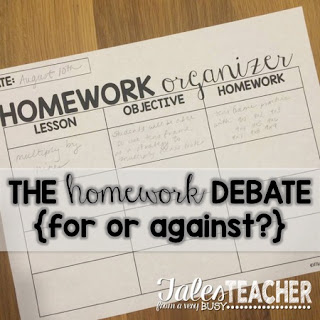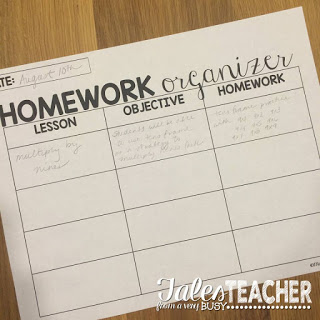There has been an ongoing battle about homework for decades. Does homework really improve student achievement? Does homework hinder children from experiencing extra curricular activities?
The arguments for both sides are each convincing, causing teachers, administrators, and districts to question their homework policies.
Homework debates go back into the beginning of the 20th century. At its conception, Homework was deemed to help students and raise rigor in learning. It shifted from what seems like decade to decade as new research emerged (Marzano & Pickering, 2007):
1940- There was a rage against homework in this decade. Nay sayers felt it took away from students’ home activities.
1950- There was concern that US education lacked rigor. The only way to fix it: more homework.
1980- Researchers and learning theorists shifted the pendulum again, worrying if homework could hinder a student’s mental health.
In today’s world, the argument against homework is more popular. Some people were calling for an end to homework and to lengthen the school day instead. Others feel that teachers should design more valuable assignments and avoid homework altogether, especially over breaks and holidays.
Arguments will continue to go back and forth. There are reasonable arguments for each stance. Ultimately, the important consensus that most researchers agree upon is that homework should be meaningful and relate the objectives of the school day’s lessons.
For example, if you teach a lesson on adverbs, make sure that night’s homework has practice on adverbs. Make it meaningful, fun, and something that will help students practice the concept.
Another example is assigning homework packets. I personally try to stay away from homework packets for the week. I feel homework packets make it difficult for students to practice objectives for each day. If you give a homework packet at the start of the week, you can’t stop the child from completing the full week’s packet on Monday. Technically, they haven’t learned the objectives for each assignment in the packet, so they’re practicing a concept they haven’t learned. This might cause confusion when you do get to the lesson later in the week. They’ll have to relearn something, which makes understanding the concept much more difficult.
So what’s a teacher to do when thinking of homework assignments? Make them meaningful and purposeful!
To make things a little easier when assigning homework, I came up with a little homework organizer spreadsheet.
It’s simple, just write a short description of the lessons you’re teaching for the day that require homework. Write the objective. Then, write the homework assignment as it relates to the objective. Use this spreadsheet each day as you plan your lessons. This is also a great way to keep tabs on your assignments for absent students, parents who have questions, or as a way to look back on something you have assigned.
Grab it here!
So, with all of that said…what’s your take on the big homework debate?!
*Source* Accessed August 2015
Marzano and Pickering, 2007








I love how detailed this post is and I totally agree with you! Thank you for sharing the homework organizer! 🙂
Management assignments usually involve an elaborate account of how the project was conducted; and the data has to be organized into tables. Calculations are made to attain meaningful results which are interpreted in form of theory. See more review essay